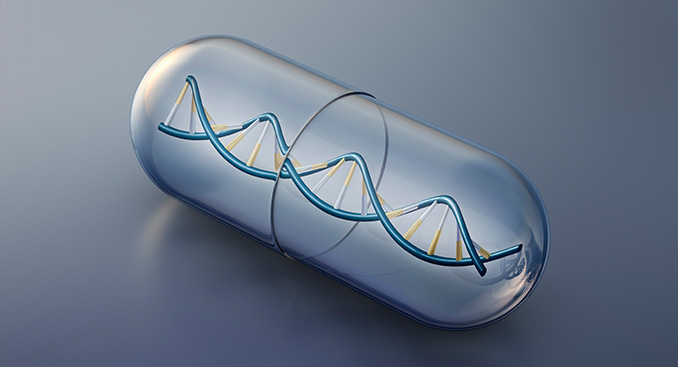- Community & News
- Service Line
Advances in Cancer Care Offer New Treatment Options

For the past two decades, cancer deaths in the U.S. have declined steadily, according to the American Cancer Society. Better screenings, better lifestyle choices, and significant advances in cancer treatment account for sparing nearly 2 million lives since 1991. “We’re definitely making strides,” says Benjamin Kuritzky, MD, hematologist/oncologist with TriHealth Cancer & Blood Institute. Two of the most exciting advances DR. Kuritzky has seen are with immunotherapy and precision medicine (also known as targeted medicine.)
Immunotherapy: Empowering Your Own Immune System
Also called biologic therapy or biotherapy, immunotherapy is a cancer treatment that enlists your own immune system to attack cancer cells. One main type of immunotherapy uses monoclonal antibodies, which are manufactured immune system proteins designed to attack a specific part of a cancer cell. A second type is called immune checkpoint inhibitors. These stimulate your immune system to recognize and attack cancer cells. “Not every cancer can be treated in this way,” says Dr. Kuritzky. “These therapies are most effective with melanoma, certain leukemias and lymphomas, and cancers of the lung, bladder, kidney, brain, and digestive tract.” He says it’s an option for patients who can’t tolerate traditional chemotherapy. Immunotherapy has fewer side effects, since it doesn’t work by harming normal cells along with cancer cells. Side effects that do occur include rash, fatigue, or autoimmune reactions like colitis. “We weigh the pros and cons of chemotherapy versus immunotherapy and then recommend what we think will work best,” Dr. Kuritzky says. “Typically, we choose one form of treatment. I have patients who are doing very well with immunotherapy”
Precision Medicine: Targeting Gene Mutations
Another cancer treatment advance has come with better understanding of how genes within cancer cells have mutated and are directing cancer cells to grow and spread. Doctors counteract this by using a drug that targets the genetic change. It’s called precision medicine because it’s customized to match particular medicines to particular types of mutations within cancer cells. “We get a tissue biopsy from a tumor and test the DNA of cancer cells to look for mutations so we have a better idea of which targeted therapy to use,” Dr. Kuritzky further explains. “These targeted therapies only go after cancer cells. Our goal is higher cure rates with fewer side effects.” For example, Herceptin® is a drug that shuts down the HER2 protein that accelerates cancer growth in women with breast cancer. “There have been lots of advancements in this area. I have many patients with stomach and breast cancer who are doing very well with precision medicine,” he says.
What’s Next?
Dr. Kuritzky emphasizes that surgery and radiation therapy still have an important role in treating and eliminating early-stage tumors, and they improve survival and quality of life in cancers in more advanced stages. Immunotherapy, precision medicine and other new treatments are currently used most often in patients with metastatic disease and more advanced cancers. Dr. Kuritzky sees the potential to use these treatments in earlier stages, once there’s a greater body of knowledge regarding their effectiveness. He notes that cancer care is rapidly changing, with treatments significantly different than those offered just five years ago. “In five more years, I’ll be using things not available now. There’s a lot of good research being done at TriHealth and nationally.” He continues, “It’s a huge honor to take care of patients at such a hard time in their lives. We don’t have all of the answers and all of the cures, but we’re coming up with new treatments at an increasing rate.”
Related Articles
- Cancer
- Conditions & Care
- Disease & Symptom Information
- Service Line